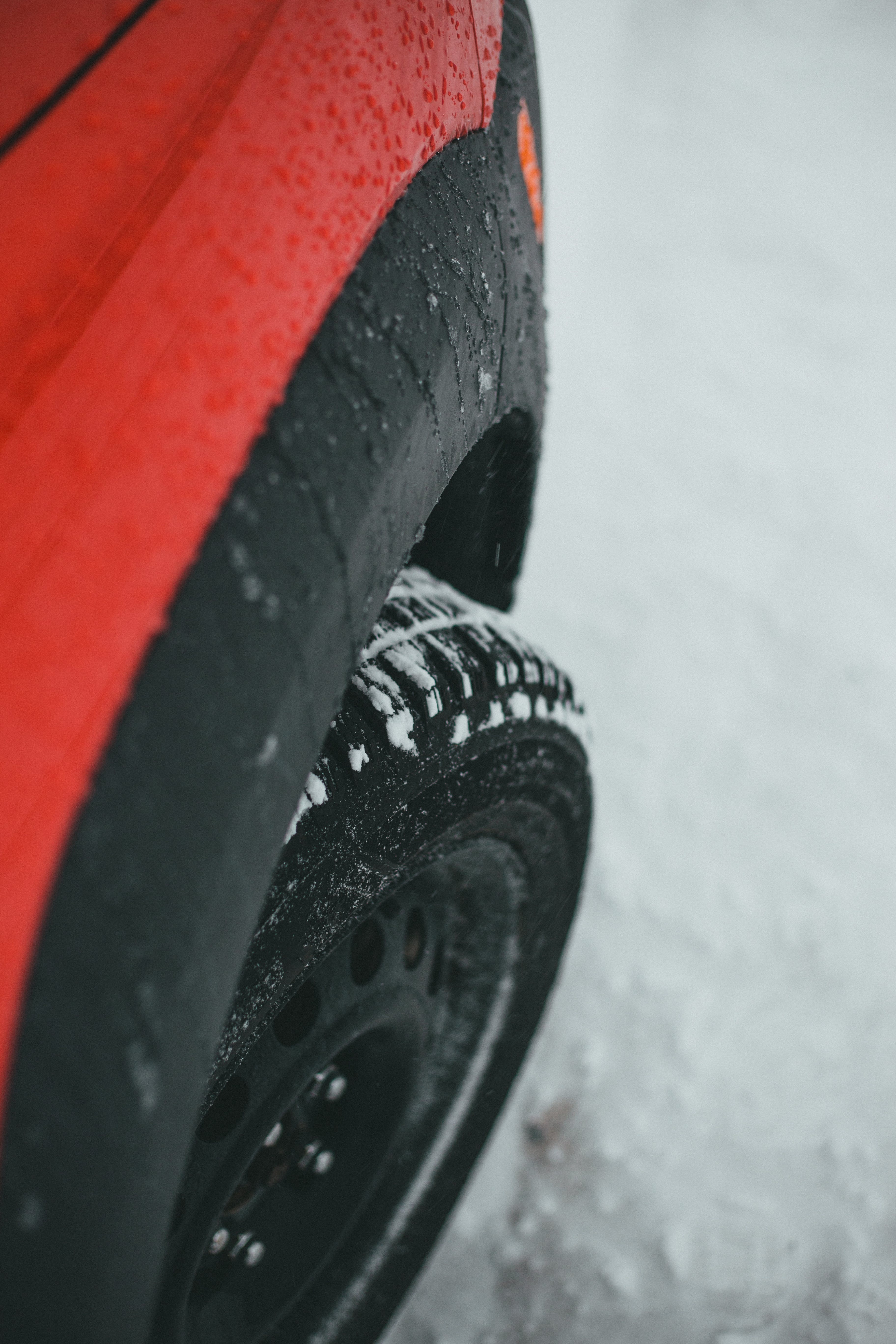It can be tempting to keep your winter tyres on over summertime, but is this really such a good idea?
Or maybe you're not even aware of the differences between summer and winter tyres and what their relative strengths are.
To help out, we've put together a handy post on the matter. So if you're keen on learning more about the rules and regulations surrounding winter and summer tyres and what the differences are, read on.
What's the Difference Between Summer and Winter Tyres?
The main difference between summer tyres and winter tyres (also known as snow tyres) lies in the tread patterns. Winter tyres work with thicker treads with large grooves that help keep traction in freezing temperatures. Winter tyres have a soft compound and a flexible consistency, whereas summer tyres have a hard compound and lower flexibility.
Secondly, winter tyres are made from a compound with more silica in it, meaning they stay supple and soft even in freezing temperatures. That's not the case with the rubber of a summer tyre in cold conditions, which becomes rigid and means it slips across the surface of the road rather than holding onto it.
The main purpose of tread pattern is the need to keep water away from the tire and to maintain sufficient grip on the surface, which can be important for stopping effectively. A winter tread pattern enhances grip in those conditions while extra broad traction allows snow to accumulate, resulting in more snow-to-snow adhesion, offering better grip on motorways.
On the other side of the equation, summer tyres begin to harden in temperatures below 7°C, causing stopping distances to soar, which you definitely DON'T want in potentially dangerous driving conditions.
Winter Tyres Are Not Snow Tyres
Yep, even though winter tyres do often go by that name, they're not specifically geared up for snowy roads, and you're best avoiding driving in the snow anyway.
A more accurate them for them would be cold weather tyres, given that they are optimised for use in temperatures below 7°C.

When Can I Use My Winter Tyres?
It's recommended that you use winter tyres whenever temperatures drop below 7°C. The reason for this is that their braking distance is generally shorter than that of summer tyres on any type of ground (dry, wet, icy, you name it). And also the fact that winter tyres offer better grip.
Is it Illegal to Drive With Winter Tyres in Summer?
In the UK, it's not illegal to use winter tyres during the warm weather summer months, and there's no legislation making them mandatory in the winter either.
However, you're still responsible for using tyres that are appropriate for the season and to prioritize safety and comfort whilst out on the road.
Just be aware that this isn't the case everywhere, as quite a few European countries DO ban the use of winter tyres in summer, and summer tyres in winter. In these countries, drivers are usually obligated to keep two sets of tyres: one for summer and one for winter. So if you're ever taking your own car or a lease car abroad, it's definitely something to bear in mind.
And speaking of lease cars . . .
Can I Change the Tyres On a Lease Car?
Yes, but any modifications you make (including to the tyres) will have to be removed before you hand the car back at the end of the leasing period, unless your contract says otherwise.
Advantages of Summer Tyres in Summer
Longevity: it goes without saying that summer tyres are going to last a lot longer in summer conditions than winter tyres.
Better safety: summer tyres have a high safety level on both dry and wet roads when temperatures exceed 7°C. Using winter tyres in the hot summer months reduces safety as stopping distances are increased and the car tends to lose grip and skid more easily.
Fuel economy: a winter tyre's rolling resistance is greater than that of a summer tyre of the same size. This means that if you drive with winter tyres in summer conditions, your car is going to use more fuel and register a greater level of CO2 emissions.
Comfort: using the right tyres in accordance with the weather/conditions can also be optimal for driver comfort. Summer tyres guarantee better road-holding in higher temperatures, giving you a safe and comfortable drive.
How Much Do Winter Tyres Cost?
The exact cost will vary enormously based on brand and size. But generally speaking, expect to pay more or less the same amount that you would for a set of summer tyres.
Winter Tyre Performance in the Rain
Summer tyres are maybe a little better here, but winter tyres still perform well in the rain, of which we get plenty during a typical British (or Scottish!) summer. The special tread patterns help repel water and prevent it from collecting in the sipes and grooves. This means that your tyres will be able to shed water more efficiently, thereby reducing the risk of aquaplaning or losing control.
Wet-weather tyres do exist, but they're so specialised that you're probably better off not 'splashing out' money on them.

Do Winter Tyres Wear Faster Than Summer Tyres?
Despite what popular opinion might say, winter tyres used in wintery conditions do not wear out faster than summer tyres used during the summer months. In fact, they could even see a little less wear.
Where's the Best Place to Buy Winter Tyres?
Halfords is always a good first port of call, and you can always look at deals online with the likes of blackcircles.com or kwikfitts.com. Generally speaking, Michelin winter tyres tend to have the best quality and are nearly twice as durable as summer tyres due to advanced technology.
Best making sure you know what size of tyres your car needs first though, of course!
All-Season Tyres
One way to avoid the problems above and get the best of both worlds is to opt for all-season tyres. As the name suggests, these are designed to work in all weathers and offer a suitable ground between summer and winter tyres.
The obvious downside is that they will neither be as good as summer tyres in summer nor as good as winter tyres in the winter, but you won't face the hassle of having to change tyres.
They're best used in temperate climates where the seasons aren't too extreme throughout most of the year, and we'd say the UK certainly qualifies.
Tyre Storage
One potential pitfall that comes with changing tyres and having multiple sets of tyres is that you'll obviously need somewhere to store them when they're not in use. And that's where a garage comes in handy, but not everyone will have access to one.
Just something that could easily be overlooked. In an ideal world, you don't want a spare set of tyres lying about in your kitchen cupboard, do you?
Summary
In conclusion, yes, you can use winter tyres in the summer, but we wouldn't recommend it. Not only are you putting your safety at a little more risk, but you're also putting additional strain on the car itself (and your wallet).
So if you've got a set of summer or all-season tyres handy, best get them fitted, folks.
Happy driving.
FAQs
Can I mix winter and all season tyres?
You could, but both have different levels of grip, so it's not advisable to do so.
What temperature is too hot for winter tyres?
You're advised not to drive with winter tyres in temperatures exceeding 7°C.
Do I need all season tyres in the UK?
There's no legal requirement for you to drive with all-season tyres, but for sure, they aren't a bad way to go.
Can I rent winter tyres?
Some companies do offer tyre rental, but it'll probably work out more expensive in the long run than if you were to actually own a set.
